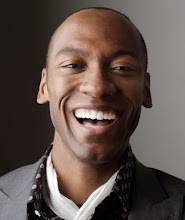The extent to which some performers tread to find the characters they represent is a lesson in patience and diligence. It's a mystery, that fine line between being aware as a performer and being completely absorbed as one's character, giving an often fictional being a pulse, desire, and purpose. This duality is intriguing and not always the easiest task to make believable.
In a quest to heighten these ideas on the operatic stage, a few basic conclusions derived from movies and films I've seen or revisited in recent months....
 Iron Lady--
Iron Lady--Exploit your character's strengths and be mindful of their weaknesses. After all, they are "human." Characters are real beings with real feelings that exist in worlds that are, often, very unlike our own.
 The Help--
The Help--What is the driving force of your character? It's not enough to simply discover a motivation; that's too short-lived. As performers, we must define the very reason why our character is alive and wants the things they do. Ask, why?
 Dancer in the Dark--
Dancer in the Dark--Have conviction! There are many types of people in the world and doubly as many for the stage. Just as we are all unique, our characters must also be unique creatures containing independent thoughts and actions.
 Latter Days--
Latter Days--Inner development must manifest outwardly. How a character evolves is crucial. Rarely are the characters we become the same people at the start of the movie/opera as in the end. How does this change manifest?
 Hunger--
Hunger--Be ugly, determined and visceral. The feelings our characters have are never wrong. There is no right and wrong when characterizing. Every emotion has its place and each feeling has an infinite spectrum of intensity and meaning.
 Hotel Rwanda--
Hotel Rwanda--Rely on the talents of your team. No production is presented alone and good artists understand they are only part of huge whole. Rely and trust the talent of your colleagues to better understand your character's circumstance.
 Whore's Son--
Whore's Son--Our characters must inhabit their own emotions. The way we personally feel must never interfere with the way our characters feel; we are not our characters and they are not us. As singers/actors we work hard to represent who we believe these people to be. Therefore, they must always be independent of ourselves.
 Ali--
Ali--Celebrate your character no matter who they are. The ultimate aim of characterization is not only to bring a fictional being into life and to give them purpose; but, it is important to present their point-of-view and help them to be understood for better or worse.

No comments:
Post a Comment